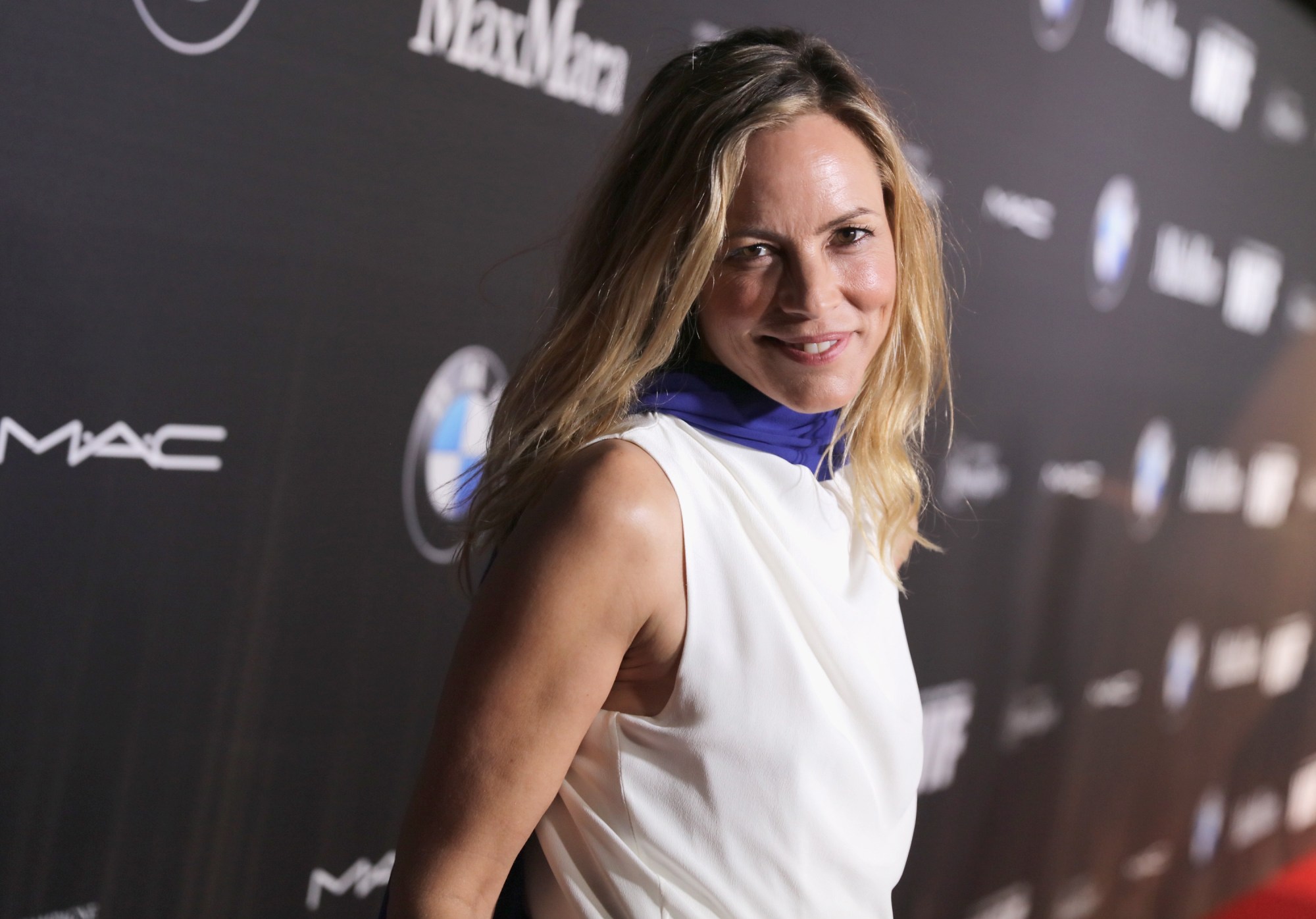
- Interviews
Maria Bello, Producer: “99% of people in Hollywood are the nicest“
Actress, writer, activist and now also producer, Maria Bello presents at the 41st edition of the Toronto International Film Festival her latest endeavor. The Journey is the Destination is the story of Dan Eldon, an artist, adventurer and Reuters News Agency’s youngest photojournalist, who was killed in Somalia in 1993 while covering the plight of a nation enduring war and famine. Maria Bello plays Dan’s mother, Kathy, in the film. Evan Marsh debuts as Dan.
Bello will also be seen at the Artists for Peace and Justice 2016 Festival Fair, a charitable event that raises funds each year for initiatives in Haiti, where she’’ co-hosts its eighth TIFF installment together with Jeremy Renner, Maxwell, Paul Haggis, Catherine Keener and Jim Belushi.
How did you decide on this project? It took 23 years and the love of a mother to bring it to the big screen.
I’m more and more into producing. That’s why I decided to star and executive produce this story called The Journey Is The Destination. I believed in Kathy when she said she wanted an entertaining story that could ignite a movement of young people around the belief that they could make a difference in the world. Gathering the best team for the project and raising the funding took longer than we expected, but we are thrilled with the outcome.
The Festival is heralding the change with a record number of 7 out of their 19 premieres directed by women. Among them, The Journey Is The Destination, directed by Bronwen Hughes. Do you think the gender equality is here to stay or it’s purely cosmetic?
There’s a huge shift taking place in terms of gender equity in Hollywood, both in front of and behind the camera. But in the end it comes down to business and money. It’s good business to make movies with women in them, as more than 50% of our movie going and TV watching population is women, so it only makes sense that we tell more of those real stories on the screen, instead of just the girlfriend on the side.
The list of projects attached to your name goes beyond Toronto. Is this a good time to be Maria Bello?
It’s all about the character. It’s about the people I’m surrounded with. I’m doing a series right now for Amazon, a David Kelly series with Billy Bob Thornton and William Hurt, called Goliath, that’ll hopefully be out in the fall. To be surrounded by such great actors, how could you go wrong! And I’m producing another big film, an action adventure with Viola Davis and her company and FAT Brown, which will be announced soon.
Talking with the Globes, Viola Davis described the movie as loosely based on a true story of the Ashanti tribe in Africa. An Army of women who staged a rebellion against colonists. “A kind of Mad Max meets Braveheart”, she said.
I’m very interested in doing films with strong women characters, in front of and behind the camera. I’ve been dealing with this a lot. At the Sundance Institute, we’re in a project called Systemic Change Project, looking at female directors. Stacy Smith from USC did a study for three years about women in film, and besides the fact that only 4% of women directed the top 100 films in Hollywood, a lot of women who go to film festivals, and have highly rated films, they come out and can’t get a job. Meanwhile men from film festivals, you know, men, they come out with one film, and they can get a feature film made like that. So there is a subconscious gender bias, which we are trying to break.
Have you ever been scared of the situation?
The only thing I used to be terrified of, were snakes. When I was a kid, I had a nightmare of a snake coming out of my bathroom wall so for years whenever I would see a snake, even someone carrying one on the street, I would get down on the floor, and go into like epileptic shock. It was crazy. And then I was going to Africa when I was 28, on my own, and I decided to do snake therapy.
Did it work? I imagine it was quite useful now that you were shooting in Africa.
I had to carry around a rubber snake for months. And I would take trips to the zoo, and every time I went to the zoo I would have to take a step closer to the cage of snakes. I was panicking. And of course, I went to Africa and I never saw one snake. But I did eventually get over my fear of snakes.
What about Hollywood? Is it a scary place?
Hollywood? People are always shocked to hear this, but I would say 99% of people in Hollywood are the nicest, most down to earth people you’ll ever meet. We’re artists, people come from all over the world. There are great thinkers, and people who are thinking outside of the box, and people doing different kinds of movies and TV shows, that are teaching compassion and showing things that haven’t been shown before. So I’m thrilled to be a part of my community.
What about the 1%? [Laughs]
The 1%, my agents can deal with. I just pretend they don’t exist.

